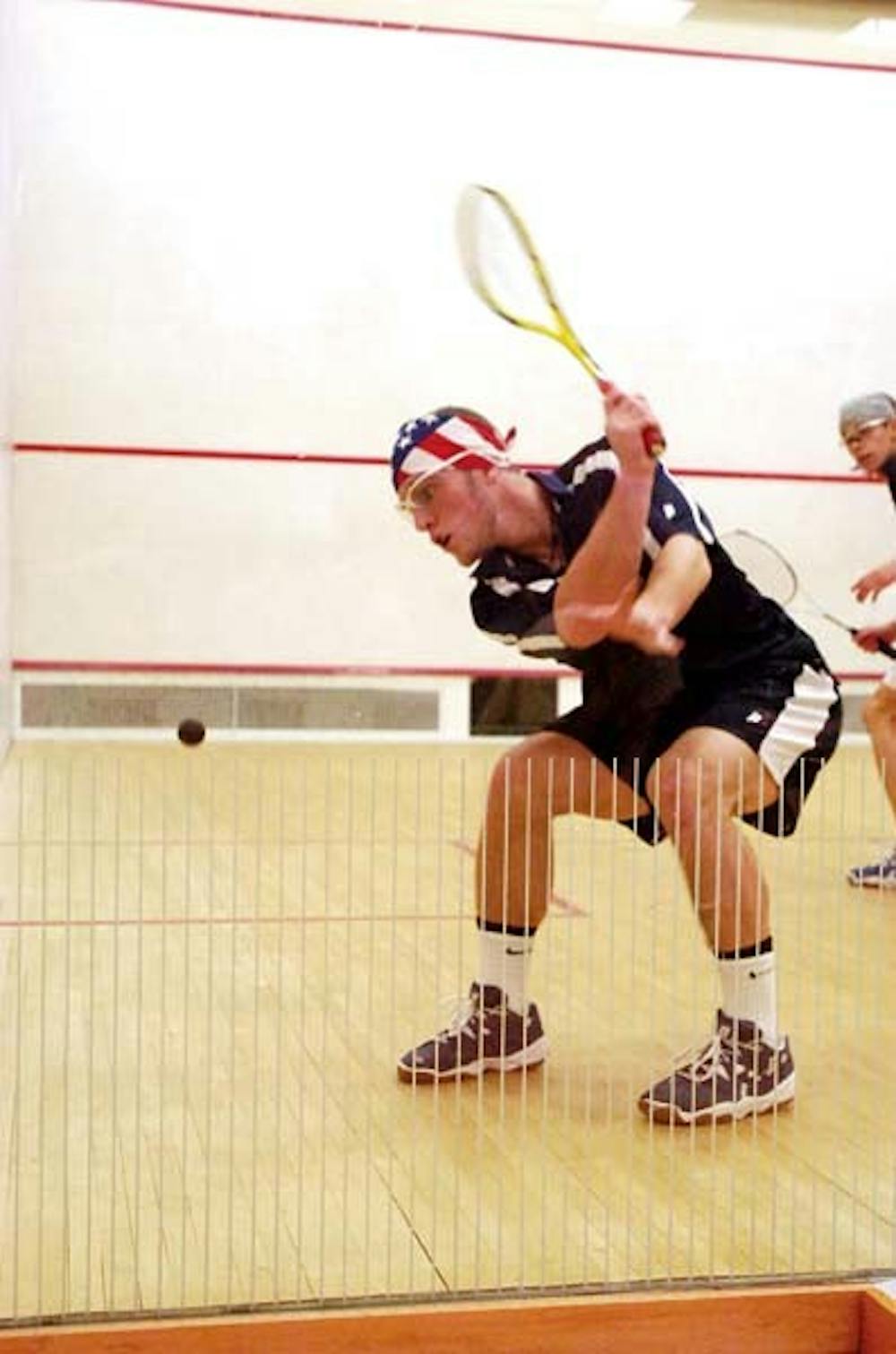Gilly Lane used to laugh at the thought of playing professional squash. But then again, that was four years ago.
That was before he had four All-Ivy and All-American selections under his belt, before he became the first Penn squash player to win the College Squash Association's Skillman award, and before he represented the U.S. at the World University games in Hungary-his most memorable squash experience to date. Soon he found himself ranked among the nation's top 10 players.
So as he left Penn, history degree in hand, he knew it was no joke. He finally had the chance to realize his lifelong dream of becoming a professional athlete and he was not going to waste the opportunity. He decided to turn pro.
Lane did not make this decision overnight. Indeed, his recent announcement was the culmination of a three-year process.
"It happened toward the end of my freshman year," Lane said in an e-mail. He wanted to work on his game, so he spent that summer training with a couple of pros.
"It gave me the idea of turning pro when school was over," he said. "However, it really hit me in the summer after my sophomore year, when I trained in England for six weeks. I really liked what I was doing."
Now Lane is back the Queen's country, working with renowned English coach Ian Robinson as he tries to adjust to competing at a higher level.
Penn coach Craig ThorpeClark, a proponent of Lane's decision to join the Professional Squash Association, explained why Lane crossed the Atlantic.
"There are lots of really good players for him to practice with and compete with," Thorpe-Clark said. "He needs a lot of match experience."
Lane added that it will expose him to different styles of play he would not have encountered in the States.
Trotting the globe is both a perk and a drawback of competing on the professional circuit, Lane said.
"Traveling around the world is one of the things I'm really excited about," he said. "The greatest challenge, however, is adjusting to the amount of travel that you have to do while concentrating on playing your best."
Professional squash is similar in structure to tennis. But prize money and endorsement deals are significantly lower. Top players can make "a decent living," according to Thorpe-Clark, who played professionally for several years, but they "don't get as many of the riches as other athletes."
Lane, however, is not concerned. He said that he's not competing for money. He also only plans to compete for between five and ten years, the first two of which will probably be spent refining his skills and adjusting to the new lifestyle.
For now, Lane's immediate goal is to dethrone Julian Illingworth as the top-ranked American within the next eighteen months.
After just three tournaments, Lane sits at number seven, 225th overall. But squash is not a United States stronghold; even Illingworth has to look up at 57 other names in the world rankings. Those who know Lane have no doubt he can live up to the challenge.
"I feel he's equal to [Illingworth]," Thorpe-Clark said. "Gilly is certainly one of the best I've coached in college."
Parker Justi, who played with Lane for two years at Penn, offered even stronger praise.
"Gilly will soon be the poster child for U.S. squash," Justi said. "He's got more dedication and ambition in his pinky finger than I do in my whole body. I wouldn't be surprised at all if Gilly is one of the best U.S. squash players ever to play in the PSA."



